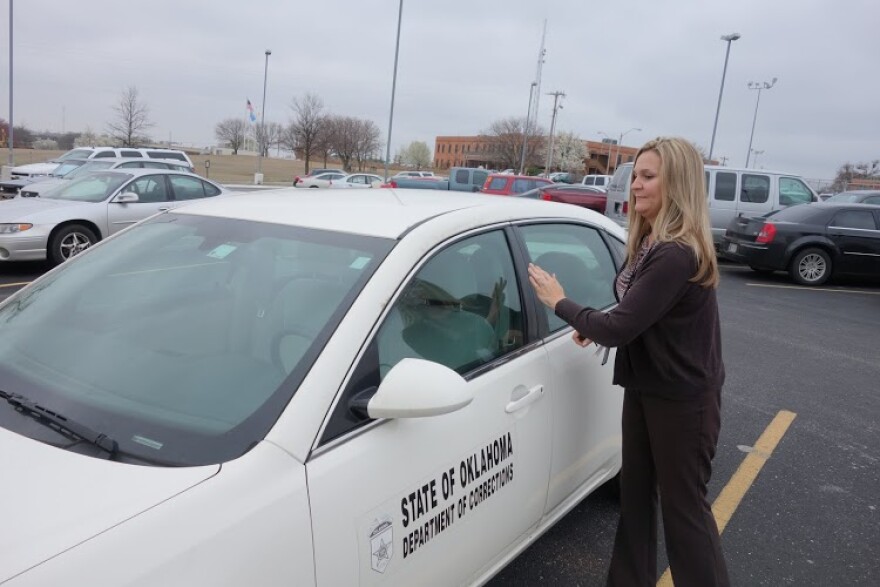Despite rising numbers of mentally ill prisoners, the Oklahoma Department of Corrections has slashed by nearly half its group therapy programs and pared back individual therapy for inmates, resulting in fewer offenders receiving preventive treatment.
The department’s psychologists, psychiatrists and related staff members instead are focusing on crisis intervention, reacting to things like suicide attempts and erratic or violent behavior.
Corrections officials say the shift is due to the growing numbers of inmates with mental-health problems, which reflects the overall surge in the inmate population in recent years. Also, the department is having trouble hiring mental-health professionals. Even the agency’s chief mental health officer, Dr. Janna Morgan, has had to travel the state to help intervene directly in crisis situations and hold therapy sessions.
As an example, a few months ago Morgan made repeated trips to the Jim E. Hamilton Correctional Center in Hogden in far eastern Oklahoma to help manage cases after a psychiatrist went on a leave of absence.
“That’s not something that anybody in this position before has done,” Morgan said, referring to her continual direct work with inmates.
Corrections Department officials say more funding would help the situation, but they assign more blame to the shortage of psychiatrists and psychologists. The department has trouble recruiting such staff because its salaries are often not as high as those in the private sector or at the Veterans Administration. Oklahoma suffers from a shortage of physicians in general, including primary care doctors.
Corrections Department spokeswoman Terri Watkins said the agency is trying to fill the positions.
“We’re ready to hire,” Watkins said. “We’ll hire those positions. We just haven’t been able to find them.”

The department’s annual report for 2014 outlines the impact of the shortage on treatment.
From 2012 to 2014, the average number of mental-health group sessions per month in prisons fell by nearly 50 percent, to 176. The average number of offenders in those sessions per month also dropped by nearly half, to 851. The average number of individual therapy sessions slipped by more than 8 percent. The number of staff consultations, which involve treatment planning, fell by more than a third.
With less preventive treatment and rising numbers of inmates, mental-health crisis events are increasing. Since 2012, the average number of monthly crisis interventions jumped by 41 percent, to 1,200 per month, the report says.
According to the Corrections Department, about a third of prison inmates exhibit signs of a serious mental illness. The number has increased by close to a third over two years, to 9,432 inmates with symptoms of mental illness in 2014, Corrections Department records show. Thirty percent of male inmates and 58 percent of female inmates have mental illness symptoms, the agency reports.
The department’s policy is to make crisis interventions the first priority.
“We prioritize what we do based on the need,” Morgan said.
Inmates are considered in crisis when their mental health has degraded to a point where they are a danger to themselves or others. Some inmates go into crisis when they hear a loved one has died on the outside or hear bad news about their legal case. Some inmates have psychotic episodes or lose control and assault other inmates or staff. “We’ve had people who have done very serious self-harm,” Morgan said.
A crisis is “anything where an offender either appears to be physically or emotionally out of control and needs assistance to manage it and help get them back to a more stable level of functioning,” she said.

To address mental-health needs, the Corrections Department has a dedicated unit with 70.5 authorized positions, 17 of which are unfilled. There are 10 vacant psychologist positions, out of 62, and three vacant psychiatrist or prescribing-provider positions, out of 8.5.
Four other vacancies are for counselors with a master’s degree.
Morgan said she does not mind taking on additional duties when the need arises.
“Everybody’s having to take on more. If I’m asking my staff to stretch themselves thin, then I’m no different - I’m going to do the same.
“We have shifted more into a crisis intervention mode than in the past since we do have higher numbers of offenders in prison,” she added.
Because of the shift, fewer resources are left for non-crisis mental health services, Morgan said. Those include services for many prisoners who are on psychotropic medications or have been diagnosed with a psychotic, bipolar or major depressive disorder.
The department partners with some Oklahoma universities and colleges to bring medical-student interns into the prison system and would like to extend those partnerships to mental health, Watkins said.
Vacant positions are among the most pressing issues facing the mental health services unit, Morgan said.
“The priority thing I would do is fill our staffing positions and then increase our staffing positions to do more of the preventative work,” Morgan said.
Oklahoma Watch is a nonprofit, nonpartisan news organization that produces in-depth and investigative content on a range of public-policy issues facing the state. For more Oklahoma Watch content, go to www.oklahomawatch.org.





